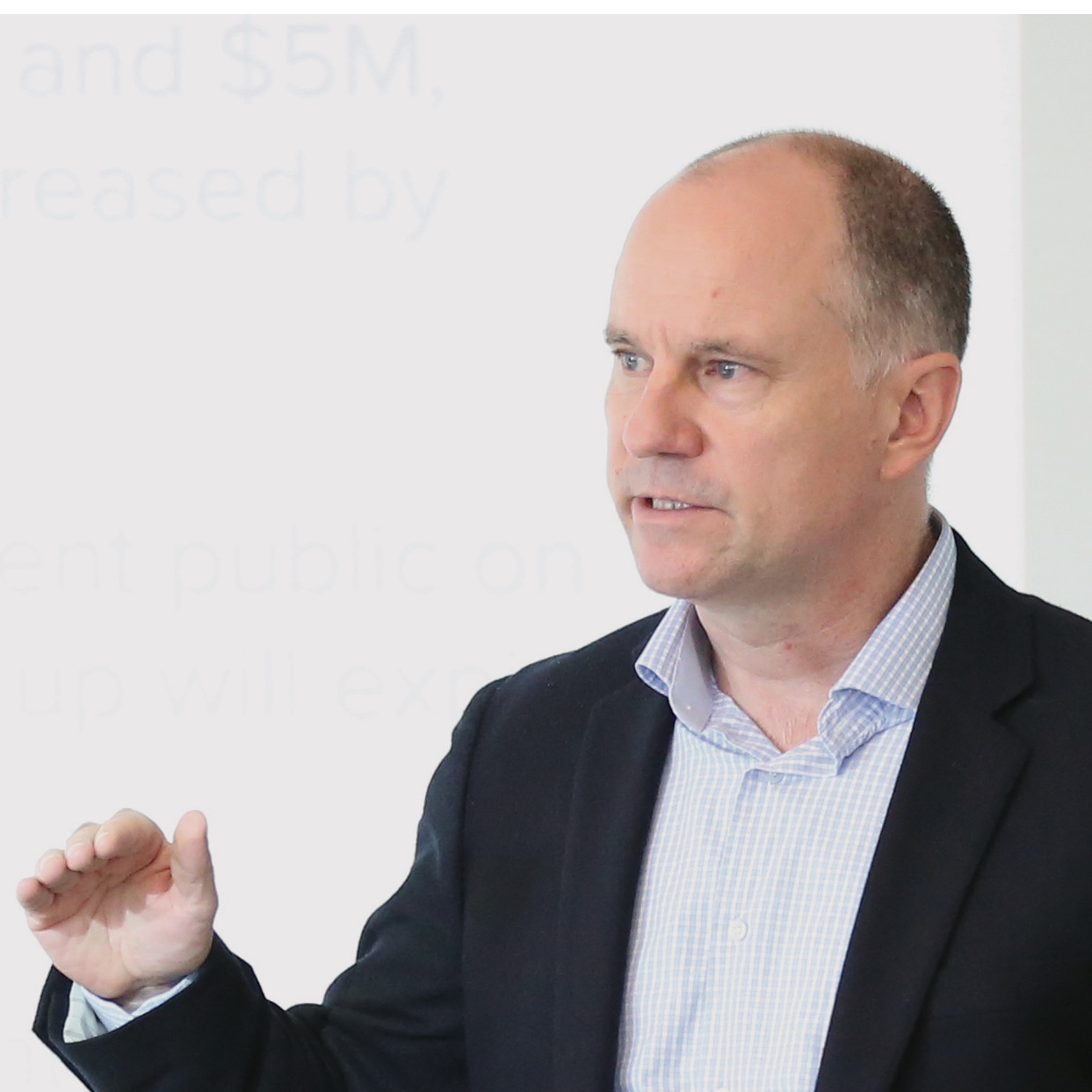New York venture capitalist Albert Wenger sees universal basic income as a central building block for overcoming the consequences of digitisation. In this interview, he explains that workers need a new way to engage in economic activity as the connection between work and value creation becomes increasingly disconnected. With a basic income, people could discover how to meaningfully complement machines—rather than compete with the.
Mr. Wenger, when people talk about digitisation, many think of apps and smartphones. What does digitisation mean from your point of view?
Albert Wenger: It's a fundamental transformation of how people can live—just as fundamental as the invention of agriculture 10,000 years ago and the invention of industrial processes 200 years ago.
What’s revolutionary about it?
Albert Wenger: All these revolutions have centred around the changing relationship between human labour and value creation. Let’s take a quick look at history: when humans discovered they could cultivate the land using ploughs and spades, they were able to provide for themselves more efficiently, settle down, and focus on new innovations. When industrialization began in the 19th and 20th centuries, it became more efficient to replace human labour with machines. However, these new machines still required workers to operate them.
Nevertheless, more machines always meant more work. When the economy expanded, capital benefited—and so did workers. But around thirty years ago, there was a major disruption: digital technology enabled something that had never been possible in the physical world—zero marginal costs. This means that duplication comes at no additional cost. For example, one more person watching a YouTube video doesn't cost anything extra, but it does generate more advertising revenue. In contrast, having one more person who wants to drive a car leads to significant manufacturing costs.

For an IT entrepreneur, that sounds pretty appealing at first, doesn’t it?
Albert Wenger: Yes, but it will lead to a number of systemic problems that will also affect entrepreneurs. Our labour market and social systems are built on the principle of positive marginal costs. When a product has no marginal costs, it doesn't create any work subject to social security contributions—and therefore, no redistribution of wealth through the labour market. While workers are increasingly employed in precarious and often multiple jobs in the service sector, a few market leaders are reaping the.
What are the consequences for our society?
Albert Wenger: The growing decoupling between capital and labour is leading to a split in society. a divide in society. While the rich are getting richer, many people are losing their jobs in industry or taking precarious positions where they receive work orders from machines and their shift and route plans from apps. They feel like they’re being left behind.
The problem is that politicians either fail to recognise the fundamental changes brought about by digitisation, or they deny them—claiming that small interventions, like a retraining program here or a bit of interest rate policy there, will be enough to return things to how they were in the industrial age.
For more and more people, that narrative no longer rings true. And this is precisely when populists like Donald Trump and others gain power, promising a sense of security through a return to the past.
But what will happen to jobs when machines take over?
Albert Wenger: There’s a lot of confusion around this topic. Since the Industrial Revolution, we’ve tended to define value primarily through paid work. We assume that those who earn more money are doing more important work. But that’s not true. The most important work is often unpaid: caring for children, parents, or friends, or doing research into something that others think is crazy but could prove vital for the future. Einstein had to work in a patent office because no one was willing to fund his research.
»The problem is that politicians either fail to recognise the fundamental changes brought about by digitisation, or they deny them.«
Or think about the climate crisis: we urgently need solutions to address it, but very few people are paid for this work because there’s no market for it.
We will never run out of interesting and important work to pursue. But to make this possible, we need to decouple we need to decouple labour from valuation.
Currently, work and value—meaning income—are still closely linked. As a result, we increasingly have to compete with machines to earn a living. But how can humans compete with machines?
Albert Wenger: First, we need to create the conditions that allow people to step away from the labour market if they choose. Just as trade unions once played a crucial role in regulating the relationship between humans and non-intelligent machines, a basic income will be key to regulating the relationship between humans and the intelligent machines that are replacing them.
As long as we’re being forced to work to survive, we have no bargaining power. But if we had a basic income, we could say no—and negotiate better working conditions. For technology to truly benefit people rather than harm them, we need to shift the balance of power in the labour market—by introducing a universal basic income.
Countries whose trade unions successfully managed the power dynamic between machines and labour during industrialization—such as Germany—reaped greater benefits from that era. Similarly, countries that understand and implement a basic income today will transition into the next era—the knowledge era—more quickly and successfully.
Of course, a basic income is not a cure-all, but it is a fundamental building block in navigating the digital revolution.
But people want meaningful work! Now you're telling them they can’t compete with machines—and offering them €1,000 as a consolation. DGB (German Trade Union Confederation) leader Hoffmann calls this a “severance payment.”
Albert Wenger: We need to stop competing with machines and start complementing them. We should focus on the kind of work that machines might be capable of doing, but that we’d rather have done by people. For example, more people than ever are going to concerts—even though any song in the world can be played with the tap of a finger. Once there’s a vaccine for the coronavirus, that trend will resume.
»We need to focus on the work that we would rather have done by people.«
We could also build cooking robots, but people prefer to be cooked for by other people, at least occasionally. There is an emotional connection here that can only exist between humans. These jobs are particularly well done when they are performed voluntarily. Only a basic income can support this.
You’re familiar with the US tech scene from the inside. Why are so many internet tycoons—Facebook founders Chris Hughes and Mark Zuckerberg, Elon Musk, and Twitter CEO Jack Dorsey—so enthusiastic about basic income? Is this their secret plan to keep people quiet and provide them with cash so they can continue to consume after being made redundant by internet companies?
Albert Wenger: I can’t speak for others, but it’s clear that many people in the field recognize the potential of new technologies and understand that a blind 'business as usual' approach would have disastrous consequences. The big mistake we've been making for the past 20 years is believing that we don’t need to radically transform society to adapt to digital production conditions. We’ve been treating digital machines the same way we treated traditional machines for the last 200 years, believing small, incremental steps would be enough. But that’s simply not the case.

